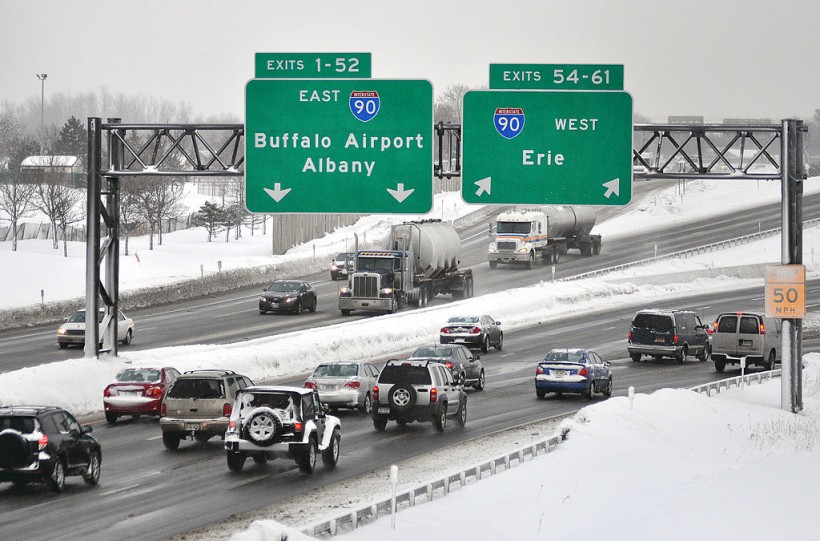A thick snow is set to blanket the city of Buffalo, New York, as a potential "lake-effect snow event" will hit the state and the wider Great Lakes region later this week.
Meteorologists issued a winter storm watch for western New York and forecasted that other parts of the US region could receive record-breaking amounts of snow amount to several feet or inches.
The National Weather Service (NWS) dubbed the event as "winter weather in the Northeast," where it says the heavy lake effect snow will impact multiple areas downwind of the Great Lakes from Wednesday, November 16, until the weekend.
With this, US weather forecasters have warned that the event could severe travel disruption, affecting boat road and air travel, due to snow-induced poor visibility.
Northeast Winter Weather

The NWS, through its Weather Prediction Center (WPC), stated the heavy lake effect snow over the Great Lakes will be initially felt from Wednesday to Thursday, November 17, especially in Lake Erie and Lake Ontario.
In addition, the NWS - WPC said winter storm warnings are in effect across the region, including in Maine.
The US weather agency adds that a cold front will arrive into the region by late Thursday to Friday, November 18, and a southwesterly flow before the front will help mitigate snowfall by pushing snow bands offshore over the lakes.
Lake-Effect Snow Event
The National Oceanic and Atmospheric Administration (NOAA) stated that the lake effect snow forms when cold or below-freezing air passes over a lake's warmer waters, causing some lake water to evaporate and make the current air above warm.
It adds the most air moves away from the lake and then cools, which will eventually dump its moisture on the ground, which can potentially become snow.
In 2006, Buffalo was also struck by the same weather phenomenon during the early morning hours of October 12 that year, prompting the locals to call it as the "October Surprise" storm, which dumped up to 27 inches of heavy snow in a short period of time.
The said 2006 snowstorm damaged trees and power lines, causing power outages and road blockages.
US Winter Season
The latest winter weather developments for November comes as the current fall season is set to expire by November 30.
The end of autumn will pave the way for the country's winter season, which spans from December to February each year.
Previous forecasts have shown that the upcoming winter will see relatively dry and wet weather in some US regions.
However, the month of November witnessed an early winter weather.
The premature cold season will bring an end to a spate of warmth that extended September-like temperatures for most parts of the central, southern, and eastern US, according to The Washington Post.
The Washington, D.C.-based newspaper also said that a blast of cold has brought "abnormally chilly weather" for mid-November and even an early-season snowstorm that is in route for some areas of the country.
Related Article: Another Winter System Moves Through Ohio, Several Parts Under Winter Storm Watch as Lake Effect Snow Sets In
© 2024 NatureWorldNews.com All rights reserved. Do not reproduce without permission.




![Roundworms with Short Memories 'Stop Forgetting' When Frozen or Given Lithium [Study]](https://1471793142.rsc.cdn77.org/data/thumbs/full/70295/280/157/50/40/roundworms-with-short-memories-stop-forgetting-when-frozen-or-given-lithium-study.jpg)
